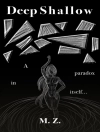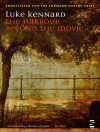In Kahlil Gibran’s The Prophet, the eponymous Almustafa discusses topics such as life and the human condition with his followers before boarding a ship home. The 26 prose poetry fables that comprise the novel are influenced not only by his own Maronite religion but also by Islam, and the mysticism of the Sufis. Running through the text is a belief in the fundamental unity of religions. One of the best-selling poetry books of all time, it shares a romantic, questing spirit with the works of William Blake and Walt Whitman.
About the author
Khalil Gibran (1883 – 1931) was a Lebanese-American writer, poet, and visual artist, best known for his debut novel “The Prophet”. Born in the Ottoman Empire, Gibran emigrated with his family to the United States, where he studied art and began writing in both English and Arabic. His romantic style of writing was ground-breaking and constituted a change away from traditional classical Arabic literature. Gibran is the third-best-selling poet of all time, behind Shakespeare and Lao Tzu.












